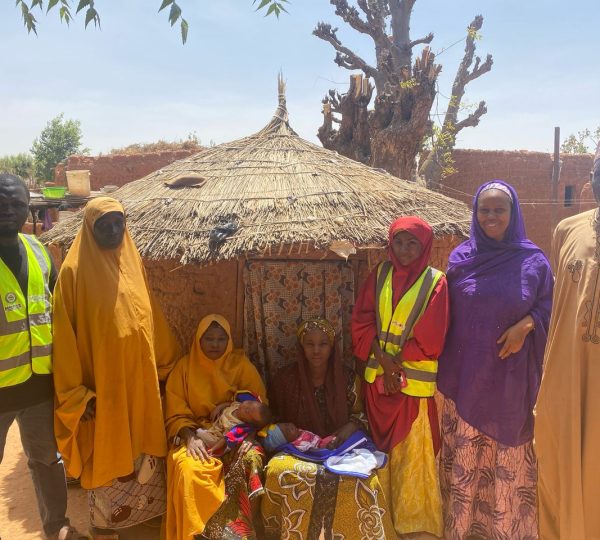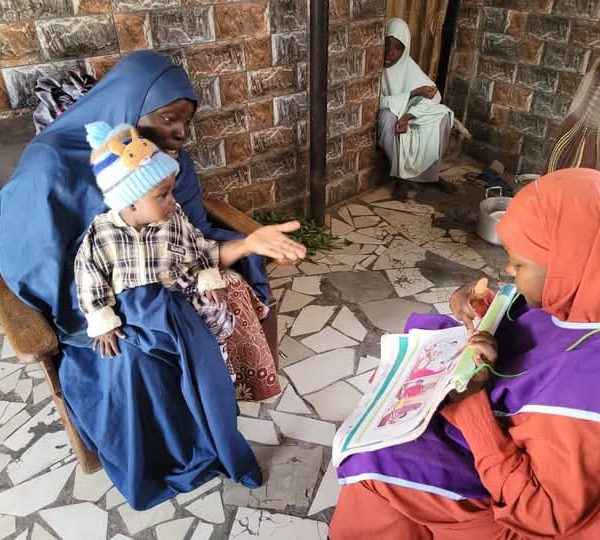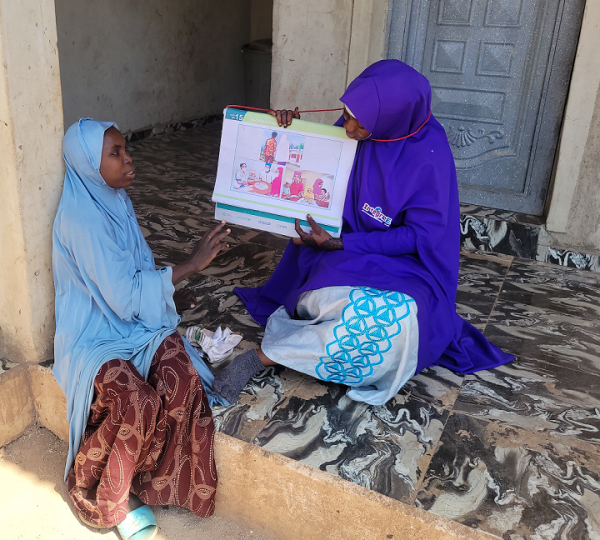‘A sense of relief’: the Nigerian project helping babies to be born free of HIV
Pelumi Salako
Fatima Sanni thought her life was over when she tested HIV positive in 2019. Pregnant with her first child, she lay on her bed and cried.
Throughout her pregnancy, Sanni, now 26, had often felt ill and used herbal remedies because she had no money to visit a health centre in Taraba, one of Nigeria’s poorest states.
It was a traditional birth attendant – people, usually women, who have experience rather than official medical training and are employed by families to help with deliveries – who suggested she get tested for HIV. Sanni’s attendant had been trained as part of the Lafiyan Yara project (meaning “wellbeing of children” in the Hausa language), to prevent the spread of HIV, spot telltale issues during pregnancy and carry out HIV tests.
“I was pregnant with my first child in 2019, and always falling sick before I went for the test. When the result came, it said I was HIV positive,” says Sanni, the youngest of her husband’s four wives.
Having a test meant she was able to get medication to prevent her passing the virus to her unborn baby, and her son was born HIV-free. She and her family received counselling, advice and treatment. Her husband, two other wives and another child also tested positive.
“They [health workers] encouraged me that I could take drugs and I would be alright. After that, a sense of relief started growing in me,” says Sanni, who is now waiting for the test results for her second child, a three-month-old daughter.
Sanni is among Lafiyan Yara’s success stories. Over the past three years, more than 800 people in Taraba have had their HIV status identified and been given treatment thanks to the project, which is supported by Aidsfonds, a Dutch non-profit organisation.
“We do not want children to come out of their mother’s womb HIV positive, even when their mothers are positive,” says programme director, Aisha Dadi. “Nigeria has a high rate of mother-to-child transmission, we want to close that gap.”
Taraba is home to 3.4 million people and has the fourth highest HIV prevalence and second highest poverty rate of Nigeria’s 36 states. Most women use traditional birth attendants because of the high cost of healthcare, and there is little awareness of mother-to-child transmission of HIV.
Lafiyan Yara trains birth attendants and provides them with gloves, face masks and HIV testing kits. They are paid about 32,000 naira (£65) a month. As well as training doulas, the programme works with communities, health workers and religious leaders to encourage more discussion and awareness of HIV.
“Before Lafiyan Yara, we were in darkness. We did not conduct tests before or after delivery. Now we have been trained and are conducting tests in the community,” says Martha Ndijo, 58, a birth attendant. The organisation also helps women start small businesses to enable them to support their children, as well as encouraging them to join savings and loans associations.
Florence Peter-James, 39, was given a small grant to set up a stall making masa (rice cakes).
“Any time we go for the meeting, we are asked to bring some little savings so that it will help us in times of need. The money we have saved is there in case we need a loan,” says Peter-James.
Sanni’s health has improved after taking her drugs. “I don’t want any other person to have HIV,” she says.
This article was first published on The Guardian




